- Home
- Holly Black
The Coldest Girl in Coldtown Page 2
The Coldest Girl in Coldtown Read online
Page 2
CHAPTER 2
We all labor against our own cure, for death is the cure of all diseases.
-Sir Thomas Browne
When Tana was six, vampires were Muppets, endlessly counting, or cartoon villains in black cloaks with red polyester linings. Kids would dress up like vampires on Halloween, wearing plastic teeth that fitted badly over their own and smearing their faces with sweet syrup to make mock rivulets of cherry-bright blood.
That all changed with Caspar Morales. There had been plenty of books and films romanticizing vampires over the last century. It was only a matter of time before a vampire started romanticizing himself.
Crazy, romantic Caspar decided that unlike decades of ancient, hidebound vampires, he wouldn't kill his victims. He would seduce them, drink a little blood, and then move on, from city to city. By the time the old vampires caught up with him and ripped him to pieces, he'd already infected hundreds of people. And those new vampires, with no idea how to prevent the spread, infected thousands.
The first outbreak happened in Caspar's birthplace, the smallish city of Springfield, Massachusetts, around the time Tana turned seven. Springfield was only fifty miles from her house, so it was in the local news before it went national. Initially, it seemed like a journalist's prank. Then there was another outbreak in Chicago and another in San Francisco and another in Las Vegas. A girl, caught trying to bite a blackjack dealer, burst into flame as cops dragged her out of a casino to their squad car. A businessman was found holed up in his penthouse apartment, surrounded by gnawed corpses. A child stood at Fisherman's Wharf on a foggy night, reaching up her arms to any adult who offered to help find her father, just before she sank her teeth into their throats. A burlesque dancer introduced bloodplay into her act and required audience members to sign waivers before attending her performances. When they left, they left hungry.
The military put up barricades around each area of the city where the infections broke out. That was the way the first Coldtowns were founded.
Vampirism is an American problem, the BBC declared. But the next outbreak was in Hong Kong, then Yokohama, then Marseille, then Brecht, then Liverpool. After that, it spread across Europe like wildfire.
At ten, Tana watched her mother sit at her mirrored vanity and get ready to go to the party of an art buyer intent on lending her gallery a few pieces. She had on a pencil skirt with an emerald-colored silk shell top, her short black hair gelled tightly back. She was fastening on a pair of pearl drop earrings.
"Aren't you afraid of the vampires?" Tana had asked, leaning bonelessly against her mother's leg, feeling the scratch of tights against her cheek and inhaling the smell of her mother's perfume. Usually, both of her parents were home before dark.
Tana's mother had just laughed, but she came back from the party sick. Cold, they called it, which at first sounded harmless, like the kind of cold that gave you the sniffles and a sore throat. But this was another kind of Cold, one where body temperatures dropped, senses spiked, and the craving for blood became almost overwhelming.
If one of the people who'd gone Cold drank human blood, the infection mutated. It killed the host and then raised them back up again, Colder than before. Cold through and through, forever and ever.
According to the Centers for Disease Control and Prevention, there was only one cure. The victim had to be prevented from drinking human blood until the infection was flushed out of the system, which could take up to eighty-eight days. No clinic provided such a service. In the beginning, hospitals had heavily sedated Cold patients, until a middle-aged and very wealthy woman came out of her medically induced coma to attack a doctor. Some people managed to take the edge off the craving for blood with booze or drugs; nothing worked for others. But if the police found out about a potential case of infection, that person would be quarantined and relocated to a Coldtown. Tana's mother was terrified. And so, two days in, once the shakes had gotten bad enough and the hunger came on, she agreed to be locked up in the only part of the house that would hold her.
Tana remembered the screams rising from the basement a week later, screams that went on all day long, while her father was at work, and then all through the night, while her father turned up the television until it drowned out every other sound and drank himself to sleep. In the afternoons after school, between bouts of screaming, Tana's mother would call for her, pleading, begging to be let out. Promising to be good. Explaining that she was better now, that she wasn't sick anymore.
Tana, please. You know I would never hurt you, my beautiful little girl. You know I love you more than anything, more than my own life. Your father, he doesn't understand that I'm better. He doesn't believe me, and I'm frightened of him, Tana. He's going to keep me imprisoned here forever. He'll never let me out. He's always wanted to control me, always been afraid of how independent I was. Please, Tana, please. It's cold down here and there are things crawling on me in the dark and you know how much I hate spiders. You're my baby, my sweet baby, my darling, and I need your help. You're scared, but if you let me out, we'll be together forever, Tana, you and me and Pearl. We'll go to the park and eat ice cream and feed the squirrels. We'll dig for worms in the garden. We'll be happy again. You'll get the key, won't you? Get the key. Please get the key. Please, Tana, please. Get the key. Get the key.
Tana would sit near the door to the basement with her fingers in her ears, tears and snot running down her face as she cried and cried and cried. And little Pearl would toddle up, crying, too. They cried while they ate their cereal, cried while they watched cartoons, and cried themselves to sleep at night, huddled together in Tana's little bed. Make her stop, Pearl said, but Tana couldn't.
And when their father put on chain mesh gloves, the kind chefs use to open oysters, and big work boots to bring their mother food at night, Pearl and Tana cried hardest of all. They were terrified he would get sick, too. He explained that only a vampire could infect someone and that their mother was still human, so she couldn't pass on her sickness. He explained that her craving for blood was not so different from how someone with pica might crave chalk or potting soil or metal filings. He explained that everything would be fine, so long as Mom didn't get what she wanted, so long as Tana and Pearl acted normal and didn't tell anyone what was wrong with Mom, not their teachers, not their friends, not even their grandparents, who wouldn't understand.
He sounded calm, reasonable. Then he walked into the other room and downed half a bottle of Jack Daniel's. And the screams went on and on.
It took thirty-four days before Tana broke and promised her mother that she'd help her get free. It took thirty-seven days before she managed to steal the ring of keys out of the back pocket of her father's tan Dockers. Once Dad left for work, she unlocked the latches, one by one.
The basement smelled damp, like mold and minerals as she started down the creaking, wooden stairs. Her mother had stopped screaming the moment the door opened. Everything was very quiet as Tana descended, the scratch of her shoes on the wood loud in her ears. Her foot hesitated on the last step.
Then something knocked her down.
Tana remembered the way it felt, the endless burn of teeth on her skin. Even though they weren't fully changed, the canines had still bit down like twin thorns or like the pincers of some enormous spider. There had been the soft pressure of a mouth, and pain, and there had been another feeling, too, as though everything was going out of her in a rush.
She'd fought back, screaming and crying, kicking her chubby little-kid legs and scrabbling with the nails of her pink child fingers. All that had done was make her mother squeeze her more tightly, make the flesh of her inner arm tear, make her blood jet like pumps from a water gun.
That was seven years ago. The doctors told her father that the memory would fade, like the big messy scar on her arm, but neither ever did.

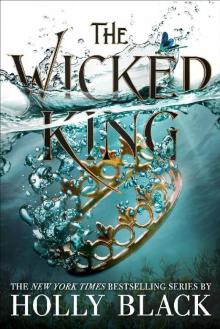 The Wicked King (The Folk of the Air #2)
The Wicked King (The Folk of the Air #2)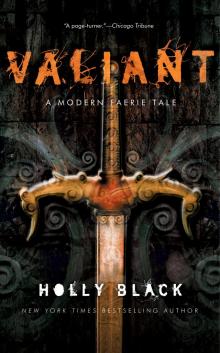 Valiant
Valiant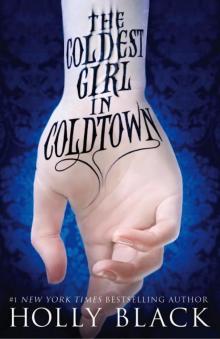 The Coldest Girl in Coldtown
The Coldest Girl in Coldtown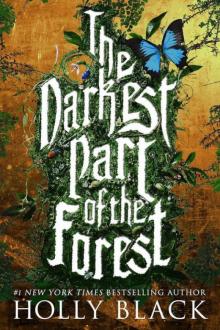 The Darkest Part of the Forest
The Darkest Part of the Forest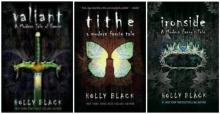 Tithe
Tithe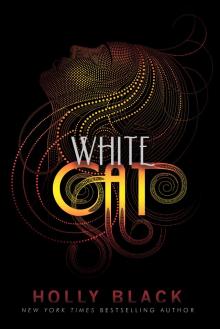 White Cat
White Cat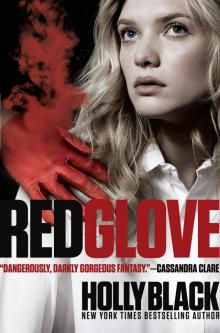 Red Glove
Red Glove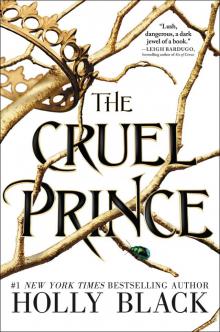 The Cruel Prince
The Cruel Prince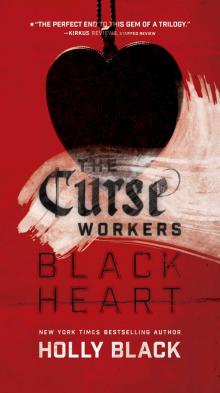 Black Heart
Black Heart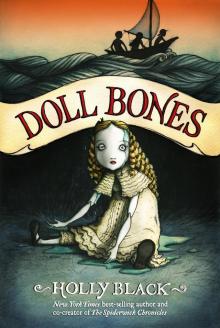 Doll Bones
Doll Bones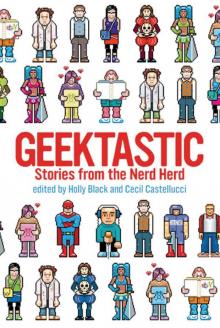 Geektastic: Stories from the Nerd Herd
Geektastic: Stories from the Nerd Herd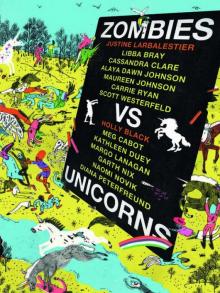 Zombies Vs. Unicorns
Zombies Vs. Unicorns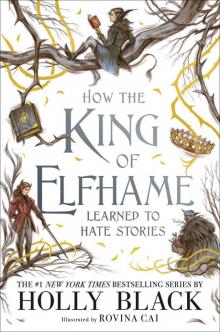 How the King of Elfhame Learned to Hate Stories
How the King of Elfhame Learned to Hate Stories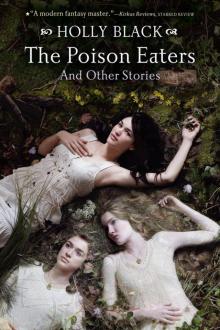 The Poison Eaters and Other Stories
The Poison Eaters and Other Stories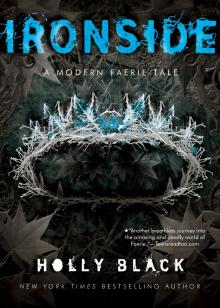 Ironside
Ironside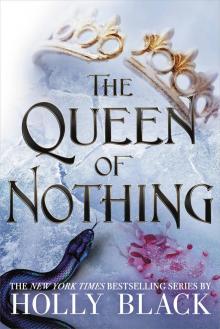 The Queen of Nothing
The Queen of Nothing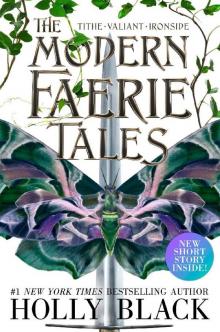 Modern Faerie Tales
Modern Faerie Tales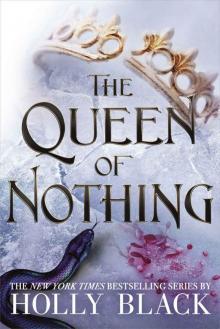 The Queen of Nothing (The Folk of the Air #3)
The Queen of Nothing (The Folk of the Air #3)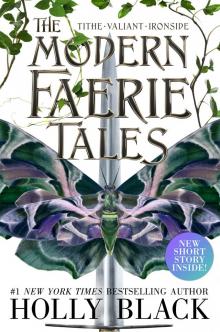 The Modern Faerie Tales
The Modern Faerie Tales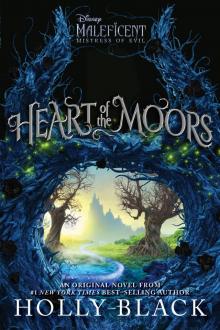 Heart of the Moors
Heart of the Moors The Golden Tower
The Golden Tower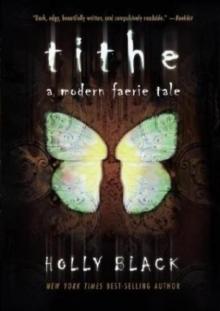 Tithe mtof-1
Tithe mtof-1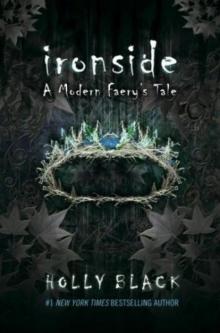 Ironside mtof-3
Ironside mtof-3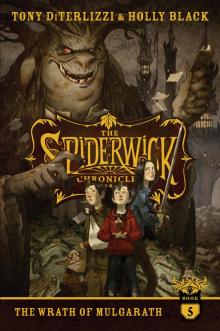 The Wrath of Mulgarath
The Wrath of Mulgarath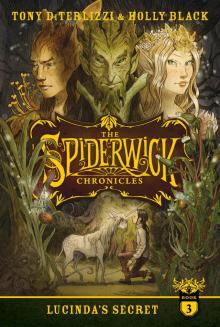 Lucinda's Secret
Lucinda's Secret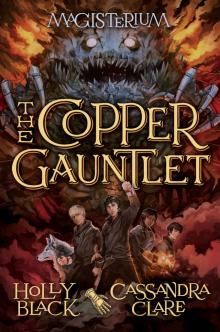 The Copper Gauntlet
The Copper Gauntlet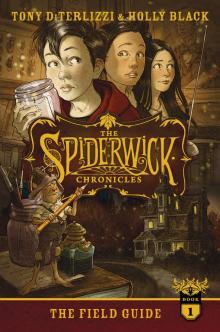 The Field Guide
The Field Guide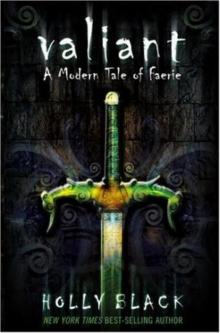 Valiant mtof-2
Valiant mtof-2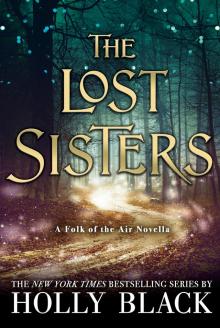 The Lost Sisters
The Lost Sisters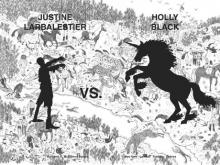 Zombies vs. Unicorns
Zombies vs. Unicorns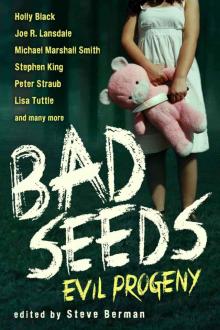 Bad Seeds: Evil Progeny
Bad Seeds: Evil Progeny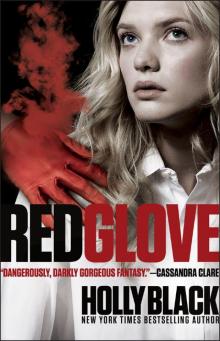 Red Glove (2)
Red Glove (2)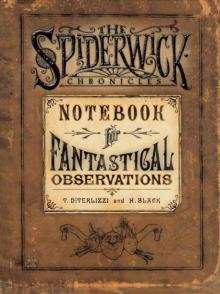 Notebook for Fantastical Observations
Notebook for Fantastical Observations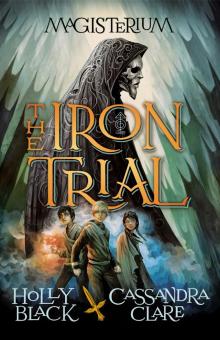 The Iron Trial
The Iron Trial Welcome to Bordertown
Welcome to Bordertown